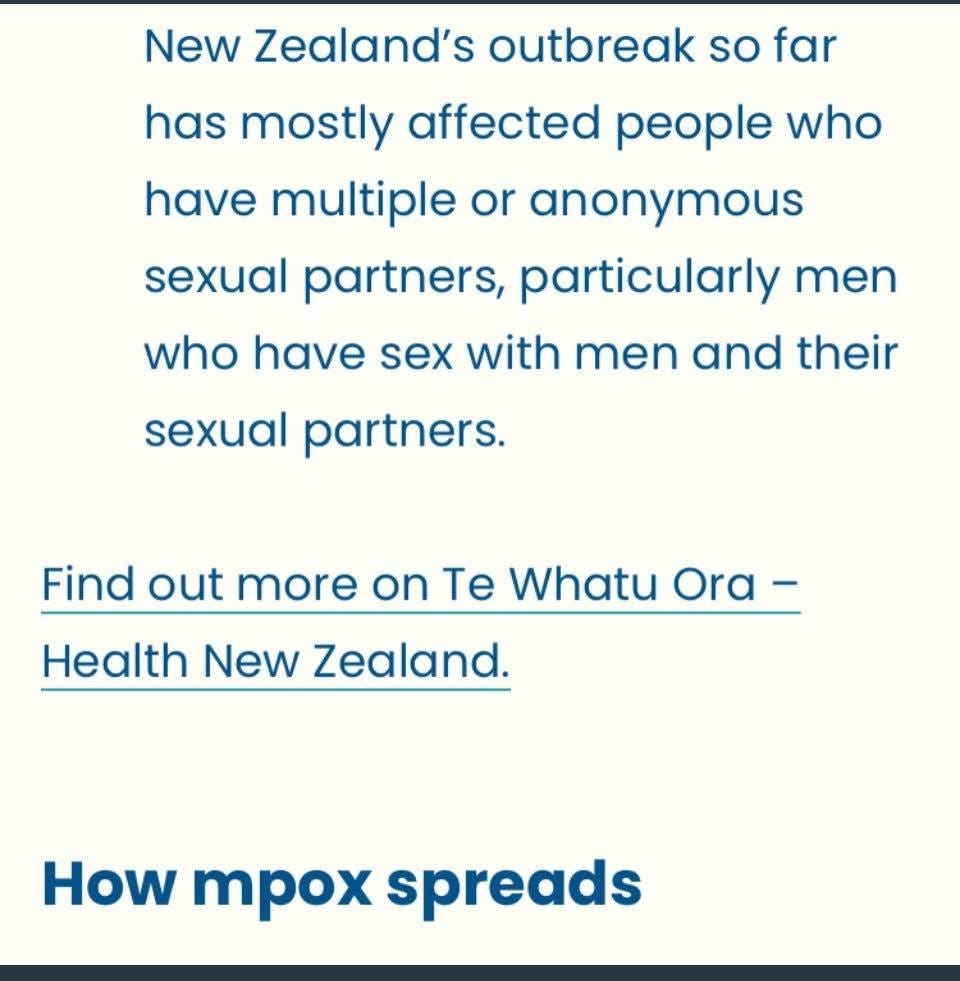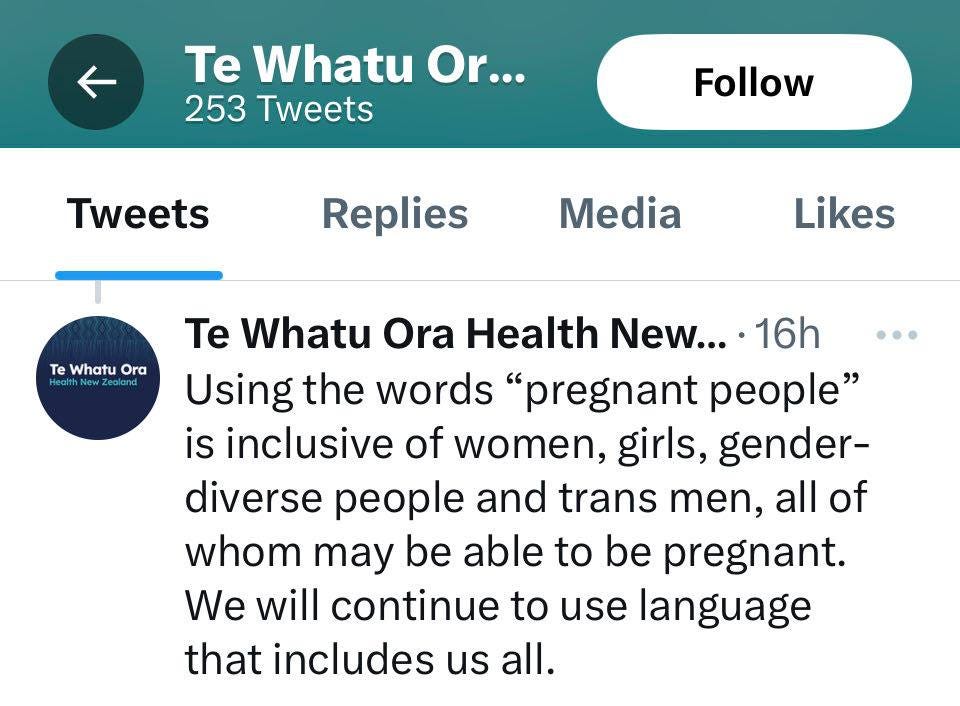Ministry of Health NZ discards the word 'women' in favour of inclusive language, but men are still ‘men’.
You’d never know that New Zealand recently passed the Plain Language Act, if the Ministry of Health’s message about “pregnant people” is any indication.
First of all, just for clarity when reading the screenshots, New Zealand’s Ministry of Health has re-branded itself with the Māori name, Te Whatu Ora. All our government departments have recently been renamed from English to Māori – which may be a topic for discussion one day, but not today.
Not only have our government departments rebranded themselves, they also appear to have developed an aversion to using the word ‘woman’. This aversion has cropped up in direct correlation to 0.8% of the population potentially finding its’ usage upsetting. However, our esteemed Public Service don’t have the same aversion to using the word ‘men’.
When the Plain Language Act says that plain language means –
(a) appropriate to the intended audience
(b) clear, concise, and well-organised
I’m fairly sure that doesn’t mean using the ignominious and dissociative term “pregnant people”, instead of the word ‘women’ when talking about pregnancy which only women (and girls) experience, and then doubling down with –
I had an exchange on Twitter about this use of language with a person whom I surmised to be a man who says he’s a woman. Although that wasn’t verified, it was my impression, so I shall refer to him as a male. If I’ve got it wrong, I don’t apologise on this occasion, as I didn’t create this shambolic situation of not knowing if people are actually the sex they purport to be.
This particular man scoffed at those who were objecting to Te Whatu Ora’s/Ministry of Health’s use of the neo-term “pregnant people”. In his opinion, if people knew the words ‘pregnant’ and ‘people’, then it was a no-brainer to work out the meaning of the phrase when those two words were put together. Especially, he further stated, when those terms, plus the terms ‘gender-diverse people’ and ‘trans men’ have been increasingly used in the news since 2020. And even if they didn’t know immediately what they meant, they could work it out.
At this point, I realised that he was most likely an ignorant academic. Although that sounds like an oxymoron, I use that expression intentionally.
He assumed that if a person knows individual words, then they will automatically understand any term, sentence, or paragraph in which they’re put together. I couldn’t count the number of times I’ve read something where I know all the words individually, but buggered if I immediately understand what’s being said when they’re all strung together.
He further assumed that everyone sees, or hears, every trans-related news item all the time, no matter how buried it may be amongst the plethora of other news items. There’s a lot of people who don’t follow the news for a variety of reasons, let alone news about a subject they’re barely aware of, if at all.
Then he assumed that people would just do the work to figure out what was being conveyed, if they didn’t immediately understand it. Funnily enough, this was after divulging that he had some sort of qualification in the use of plain language. I didn’t get to ask why, in that case, did he think that the reader of a public message was the one who should do the work of understanding it, rather than the writer doing the work of ensuring that the most people understood it most of the time, because he then blocked me.
Not a bad few minutes work 😊
But, it’s disturbing to think that this person might be the sort of bureaucrat we have in our public service who writes the sort of twaddle that Te Whatu Ora/Ministry of Health puts out. Even worse, he may be a plain language advisor across several Ministries, or the person to who deals with the complaints from the public about the Public Service not using plain language.
I believe that referring to him and his ilk, who may be filling up our Public Service, as ‘ignorant academics’ is not the oxymoron it seems, as they seem to be ignorant of life outside academic and bureaucratic confines, which is where most of the world resides.







Only women have the capacity to, sorry, bleed, breed and feed, even though this capacity lasts only a third of our lives. Most if not all women bleed, most go on to breed, most of these go on to feed. If you do not nor have never had this capacity, you are NOT a woman, and no amount of strident shrieking or repetition will alter this.
A cat is not a dog, in spite of continual "yelly" insistence that it is. All you will end up with is an unhappy cat. I predict many law-suits in the future over transitioning and detransitioning.
"No scrotum-toters in women's quarters (safe male-free spaces) or quotas" (statistics).
Sadly, the phrase 'ignorant academic' is far from being an oxymoron, but rather verbal redundancy reminiscent of Mark Twain's: “Reader, suppose you were an idiot. And suppose you were a member of Congress. But I repeat myself.”
Academic credentials which used to mean something have been devalued by the packing of universities with students who have left school without basic literacy skills, and the flight or cancellation of faculty with any scholastic integrity.